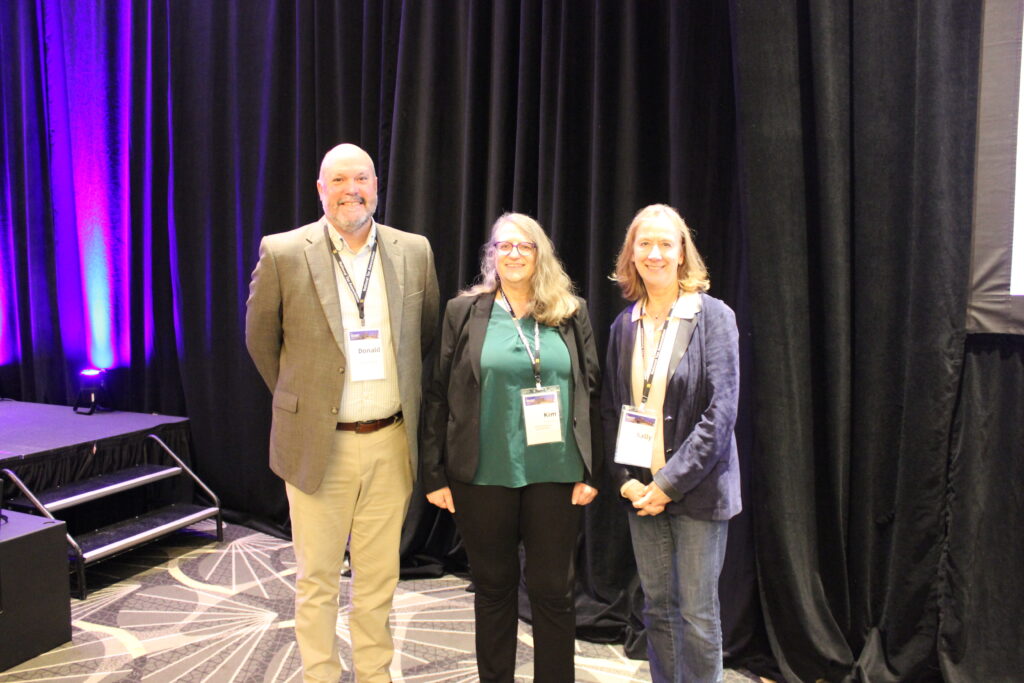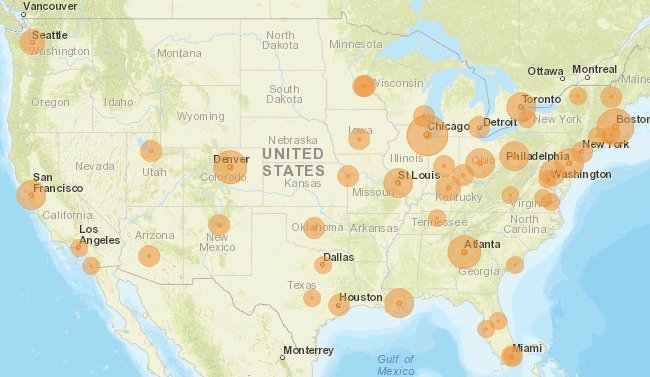Thursday, November 14th Keynote Luncheon Panel “Legacy Cities’ Fiscal Policy Challenges and Innovations”

Daphne A. Kenyon, Ph.D. retired from 17 years as resident fellow in tax policy at the Lincoln Institute of Land Policy two years ago. She spent 2023 as president of the National Tax Association. Currently she continues her part-time professional work as Principal of D. A. Kenyon & Associates. Kenyon’s prior positions include professor and chair of the Economics Department at Simmons College, senior economist with the U.S. Department of the Treasury and the Urban Institute, and assistant professor at Dartmouth College. Her most recent publications are “Reflections on the US Property Tax: Past, Present, and Future (her NTA presidential address in the National Tax Journal) and Rethinking the Property Tax-School Funding Dilemma, a Lincoln Institute policy focus report co-authored with Bethany Paquin and Andrew Reschovsky. Kenyon earned her B.A. in Economics from Michigan State University and her M.A. and Ph.D. in Economics from the University of Michigan.
 John Austin is a Senior Fellow with the Eisenhower Institute at Gettysburg College (EI), leading EI’s work promoting ideas and network-building to spread economic opportunity and strengthen democracies across the globe. He also serves as a Non-Resident Senior Fellow with the Brookings Institution where for over twenty years he has led efforts to support economic transformation in the American Midwest and in the industrial heartlands of Western democracies. Mr. Austin is also an Affiliated Faculty with the University of Michigan Marsal School of Education. Previously he served 16 years as a state-wide elected official on the Michigan State Board of Education, including as the Board’s President for six years. Austin received his Master’s in Public Administration from Harvard’s Kennedy School of Government, and a Bachelors from Swarthmore College in Economics & Political Science, with High Honors and Phi Beta Kappa.
John Austin is a Senior Fellow with the Eisenhower Institute at Gettysburg College (EI), leading EI’s work promoting ideas and network-building to spread economic opportunity and strengthen democracies across the globe. He also serves as a Non-Resident Senior Fellow with the Brookings Institution where for over twenty years he has led efforts to support economic transformation in the American Midwest and in the industrial heartlands of Western democracies. Mr. Austin is also an Affiliated Faculty with the University of Michigan Marsal School of Education. Previously he served 16 years as a state-wide elected official on the Michigan State Board of Education, including as the Board’s President for six years. Austin received his Master’s in Public Administration from Harvard’s Kennedy School of Government, and a Bachelors from Swarthmore College in Economics & Political Science, with High Honors and Phi Beta Kappa.

Jennie Huang Bennett has served as the former Chief Financial Officer for the City of Chicago from 2019-2023. During her tenure, the City of Chicago closed a $1.2 billion budget gap in the midst of the pandemic, the largest in the City’s history, brought structural balance to the City’s finances, achieved the highest reserve levels in at least a decade, and secured 13 rating upgrades and 3 positive outlooks for the first time in as much as a quarter century for the City. O’Hare International Airport was only one of 2 airports to come out the pandemic with two higher ratings than it held going into the pandemic. The City of Chicago also developed three largest in the City’s history investment plans totaling $8 billion in transformative investments for the City, including the City’s inaugural ESG bonds which was awarded the Bond Buyer Deal of the Year. She led the development of Chicago Connected, the largest and longest duration internet accessibility program which cut in half the digital digit in Chicago, the Chicago Small Business Resiliency Fund, one of the largest small business loan programs in the country, and the Chicago Families Forward Fund, which provided cash assistance to housing insecure families in the midst of the pandemic. She also served on the boards of two of the City’s four pension funds.
Jennie has a wide range of both public sector and private sector experience. Previous to the City, she served as the Chief Financial Officer for Chicago Public Schools (CPS). Jennie has extensive experience in managing financial turnarounds, driving cost efficiencies, managing large complex capital structures, developing governmental budgets, generating revenues through creative solutions, and finding paths toward financial stability. She helped lead CPS through significant financial difficulties, which was relieved through fairer educational funding. She also served as CPS’s acting Chief Internal Auditor from 2018-2019 and Treasurer from 2012-16. Prior to CPS, Bennett spent over a decade as a senior investment banker in municipal securities, managing post-recovery financing needs for New York after 9/11 and Mississippi after Hurricane Katrina, stadium financings, a large water and wastewater acquisition among other types of municipal financings.
Jennie has served on several boards, including currently as a member of the Municipal Securities Rulemaking Board, a regulatory body governing the municipal market, the Peggy Notebaert Nature Museum, the Lyric Opera of Chicago and the Board of Governors of the City Club of Chicago. She previously served as board member of Perspectives Charter Schools, the Chicago Opera Theater and Women in Public Finance. She is a member of the Economic Club of Chicago.

Jared Fleisher is the Vice President of the Rock Family of Companies, Dan Gilbert’s portfolio of companies which includes Rocket Mortgage, the nation’s leading mortgage lender; the Cleveland Caveliers; and Bedrock Real Estate, a full-services commercial real estate firm dedicated to the revitalization of Detroit and Cleveland.
In this role, Jared is principally focused on strategy and public policies that support urban development and the building of vibrant city centers. Among other activities, he developed Michigan’s Transformational Brownfield Program (TBP), a new incentive program designed to support large-scale redevelopment of brownfield sites in Michigan.
In addition to the TBP legislation, Jared has been involved in the development, passage, and implementation of nearly every major piece of economic development legislation in Michigan over the past decade, including the creation of the Michigan’s Critical Industry Program and Strategic Site Readiness Program designed for large-scale attraction and retention projects.
Jared is also active at the federal level on tax policy related to economic development and public infrastructure. He is one of the leaders of a national coalition advocating for federal policy to help downtowns adapt to changing work patters after COVID-19, specifically by supporting the conversion of excess and obsolete office and commercial space to housing. He has also been integrally involved in the development, and amendment, of federal innovative financing programs including the Water Infrastructure Finance and Innovation Act, the Transportation Infrastructure Finance and Innovation Act, and the Railroad Rehabilitation and Improvement Financing Act.
Prior to joining the Rock Family of Companies, Jared was an Attorney with Squire Patton Boggs in Washington, DC where he represented local governments in achieving their infrastructure and economic development policy and funding objectives. Jared is a graduate of Harvard University and Harvard Law School. He is originally from Los Angeles, California and currently resides in Detroit, Michigan.

David Massaron is currently the Chief Economic Development and Real Estate Officer of General Motors where he is responsible for GM’s strategy for site selection, economic development strategy and global real estate portfolio.
Massaron joined GM from Wayne State University, where he served as Chief Business Officer and Chief Financial Officer, as well as Treasurer for the University’s Board of Governors.
Previously, Massaron served as Budget Director for the State of Michigan after holding various roles with the City of Detroit, including Chief Financial Officer, Chief Operating Officer and Senior Counsel to Mayor Mike Duggan. Massaron started his legal career at Dickinson Wright and was later Principal at Miller Canfield from 2007 – 2014.
Massaron is Board Chair of Detroit Equity Inc. and serves on the Board of Directors for the Regional Transit Authority of Southeast Michigan, the Detroit Riverfront Conservancy and the Downtown Detroit Partnership. A native of Detroit, Massaron holds a Bachelor of Arts in political theory and constitutional democracy from the James Madison College at Michigan State University, and a Juris Doctorate from William and Mary Law School.
Friday, November 15th Keynote Address “Infrastructure and State Capacity”

Edward Glaeser is the Fred and Eleanor Glimp Professor of Economics and the Chairman of the Department of Economics at Harvard University, where he has taught microeconomic theory, and occasionally urban and public economics, since 1992. He has served as Director of the Taubman Center for State and Local Government, and Director of the Rappaport Institute for Greater Boston. He has published dozens of papers on cities economic growth, law, and economics. In particular, his work has focused on the determinants of city growth and the role of cities as centers of idea transmission. He received his PhD from the University of Chicago in 1992. His books include Cities, Agglomeration, and Spatial Equilibrium (Oxford University Press, 2008), Rethinking Federal Housing Policy (American Enterprise Institute Press, 2008), Triumph of the City (Penguin Press, 2011), and Survival of the City: Mass Flourishing in an Age of Social Isolation (Penguin Press, 2021).
![National Tax Association [ National Tax Association ]](https://ntanet.org/wp-content/themes/nta-custom/library/images/nta-whitebg-web-top.svg)


![National Tax Association [ NTA ]](https://ntanet.org/wp-content/themes/nta-custom/library/images/nta-white-logo.svg)